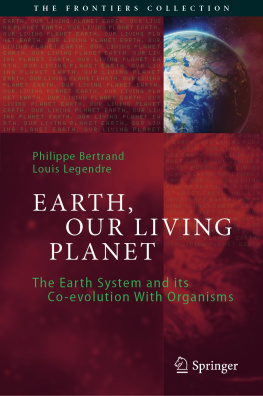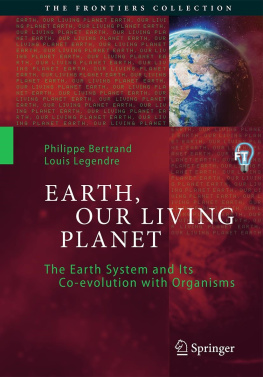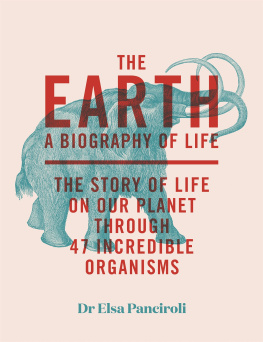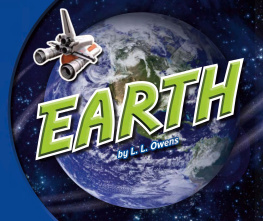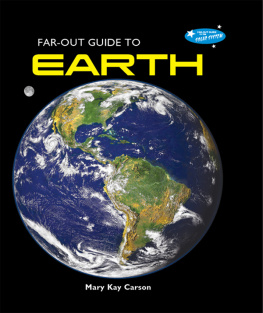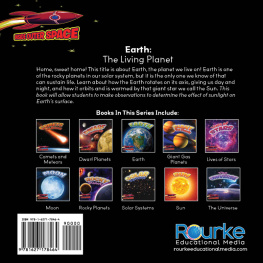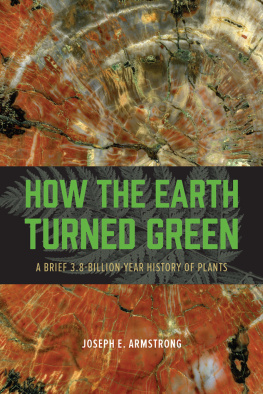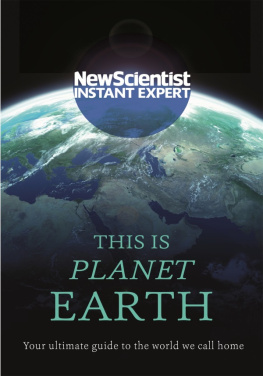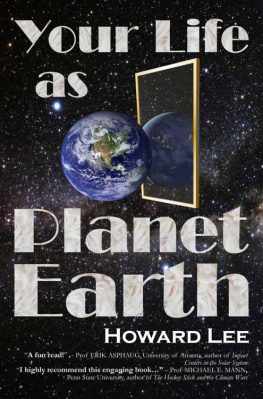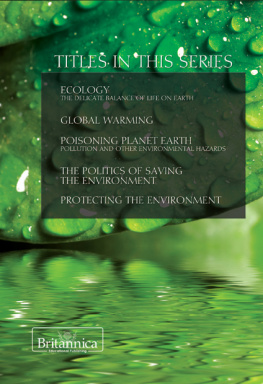Philippe Bertrand - Earth Our Living Planet: The Earth System and its Co-evolution With Organisms
Here you can read online Philippe Bertrand - Earth Our Living Planet: The Earth System and its Co-evolution With Organisms full text of the book (entire story) in english for free. Download pdf and epub, get meaning, cover and reviews about this ebook. publisher: Springer International Publishing, genre: Religion. Description of the work, (preface) as well as reviews are available. Best literature library LitArk.com created for fans of good reading and offers a wide selection of genres:
Romance novel
Science fiction
Adventure
Detective
Science
History
Home and family
Prose
Art
Politics
Computer
Non-fiction
Religion
Business
Children
Humor
Choose a favorite category and find really read worthwhile books. Enjoy immersion in the world of imagination, feel the emotions of the characters or learn something new for yourself, make an fascinating discovery.
- Book:Earth Our Living Planet: The Earth System and its Co-evolution With Organisms
- Author:
- Publisher:Springer International Publishing
- Genre:
- Rating:3 / 5
- Favourites:Add to favourites
- Your mark:
- 60
- 1
- 2
- 3
- 4
- 5
Earth Our Living Planet: The Earth System and its Co-evolution With Organisms: summary, description and annotation
We offer to read an annotation, description, summary or preface (depends on what the author of the book "Earth Our Living Planet: The Earth System and its Co-evolution With Organisms" wrote himself). If you haven't found the necessary information about the book — write in the comments, we will try to find it.
Earth Our Living Planet: The Earth System and its Co-evolution With Organisms — read online for free the complete book (whole text) full work
Below is the text of the book, divided by pages. System saving the place of the last page read, allows you to conveniently read the book "Earth Our Living Planet: The Earth System and its Co-evolution With Organisms" online for free, without having to search again every time where you left off. Put a bookmark, and you can go to the page where you finished reading at any time.
Font size:
Interval:
Bookmark:
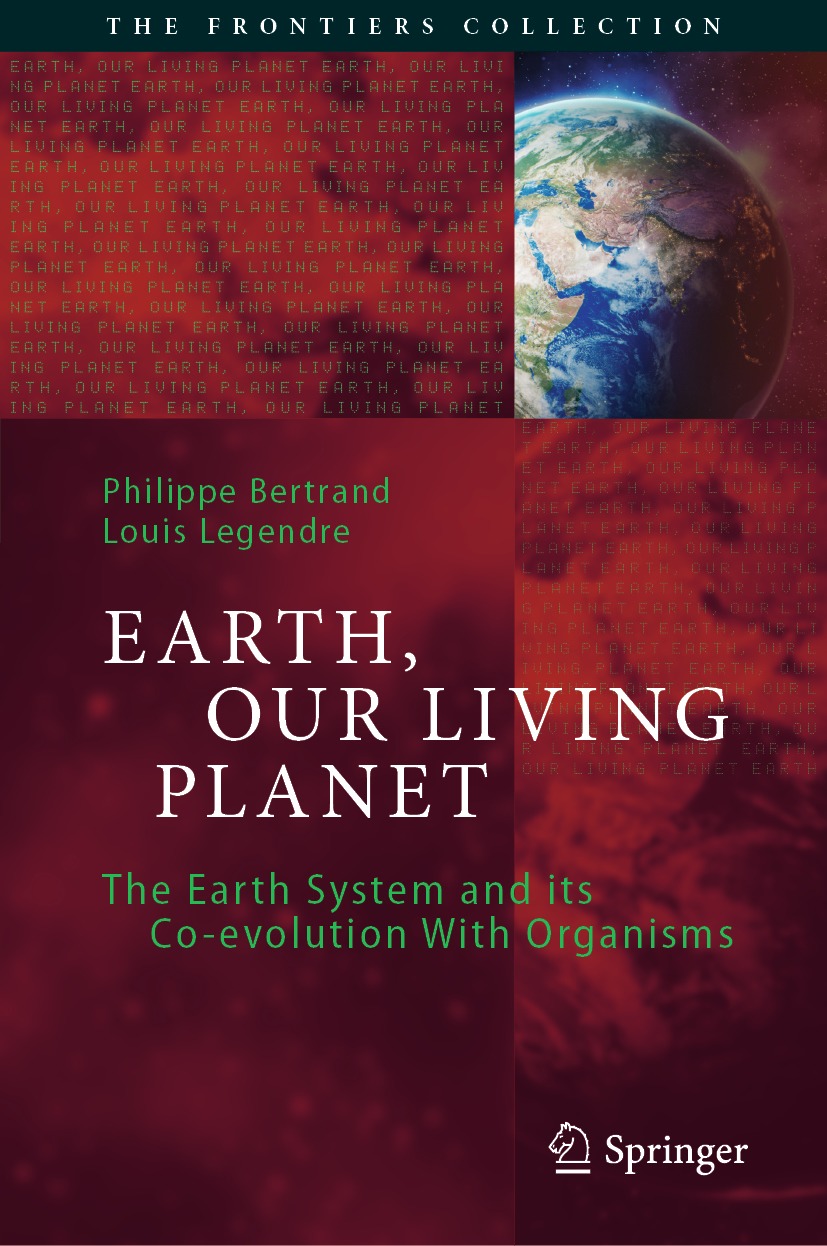
The books in this collection are devoted to challenging and open problems at the forefront of modern science and scholarship, including related philosophical debates. In contrast to typical research monographs, however, they strive to present their topics in a manner accessible also to scientifically literate non-specialists wishing to gain insight into the deeper implications and fascinating questions involved. Taken as a whole, the series reflects the need for a fundamental and interdisciplinary approach to modern science and research. Furthermore, it is intended to encourage active academics in all fields to ponder over important and perhaps controversial issues beyond their own speciality. Extending from quantum physics and relativity to entropy, consciousness, language and complex systemsthe Frontiers Collection will inspire readers to push back the frontiers of their own knowledge.
More information about this series at http://www.springer.com/series/5342

This Springer imprint is published by the registered company Springer Nature Switzerland AG
The registered company address is: Gewerbestrasse 11, 6330 Cham, Switzerland
We, the two authors of this book, are both oceanographers, but our scientific and geographic backgrounds are quite different. One of us was initially trained as a chemist, and spent most of his career in France. The other was initially trained as a biologist, and spent the first part of his career in Canada before moving to France. In the latter country, one of us was based on the Atlantic Ocean and the other on the Mediterranean Sea. We first met in the multidisciplinary context provided by the French national research organization CNRS (Centre National de la Recherche Scientifique). Talking together, we realized that we shared a common interest in topics that went beyond our own scientific domains.
In 2004, Louis Legendre published a book on the discovery process entitled Scientific Research and Discovery: Process, Consequences and Practice (International Ecology Institute, Oldedorf-Luhe) followed by an abridged electronic edition in 2008 ( what we mean by takeover in this context.
Indeed, there is a large body of studies on the emergence of life on Earth and its further diversification into billions of species, both extinct and extant. These studies involve such scientific disciplines as molecular and cell biology, developmental and evolution biology, genetics, taxonomy, and paleontology. There is another large body of research on the functioning of ecosystems and their perturbations by the ongoing climate change, which involve such disciplines as biogeochemistry, ecology, oceanography, limnology, and climatology. However, less attention is devoted to what lies between the two sets of phenomena, that is, the fact that organisms not only appeared and diversified on Earth, but became so abundant that they modified the physical and chemical environment of the planet and largely took over the functioning of the Earth System. This led us to the question: Which combination of factors led to this apparently unique development in the Solar System? We thought that trying to answer this question would be an original contribution to Earth System Science.
Philippe Bertrand had already provided some high-level answers to this deep question in his 2008 book, in a form mainly intended for experienced researchers. For the present book, we decided early (in 2011) to address a more general audience. We looked for a possible Publisher for our future work, and found that the books in Springers Frontiers Collection were devoted to challenging and open problems at the forefront of modern science and scholarship [] written in a manner accessible also to scientifically literate non-specialists. This corresponded precisely to what we had in mind for our book. In turn, the approach underlying the collection largely determined our approach to the book, including the encouragement to active academics in all fields to ponder over important and perhaps controversial issues beyond their own speciality.
As we wrote our manuscript, we investigated numerous domains of astronomy, geology, geophysics, chemistry, climatology, biology, ecology, systems theory, and other disciplines, in which we revisited the territories we had journeyed in the past and also explored new lands. The resulting information influenced the content and structure of the book, and the resulting changes to our original plans led us to explore new domains of knowledge.
The book thus took a life of its own, but we always reined in our exploration of new areas of knowledge to stay on the track of the conditions that have enabled organisms and ecosystems to take over the Earth System. Accordingly, each of the first eight chapters of the book begins with the identification of a connection between organisms and the Earth System, after which information from several disciplines is combined to explain the occurrence of this global connection. The last three chapters are progressively broader syntheses of the materials presented in the previous chapters, which lead to general mechanisms that govern the functioning of the Earth System (Chapter ).
Font size:
Interval:
Bookmark:
Similar books «Earth Our Living Planet: The Earth System and its Co-evolution With Organisms»
Look at similar books to Earth Our Living Planet: The Earth System and its Co-evolution With Organisms. We have selected literature similar in name and meaning in the hope of providing readers with more options to find new, interesting, not yet read works.
Discussion, reviews of the book Earth Our Living Planet: The Earth System and its Co-evolution With Organisms and just readers' own opinions. Leave your comments, write what you think about the work, its meaning or the main characters. Specify what exactly you liked and what you didn't like, and why you think so.

